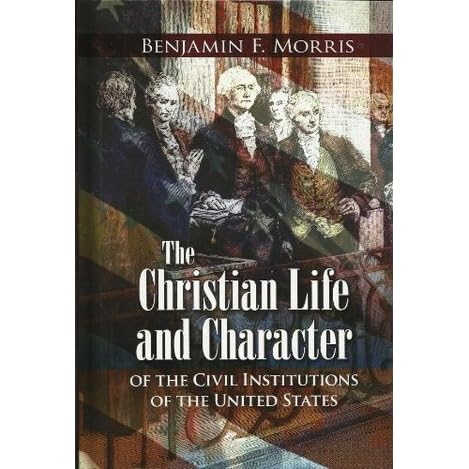On a completely unrelated subject, another poster began to lecture me that America did not have a Christian heritage (I'm paraphrasing but you get the idea).
Very well. Challenge accepted...
On the Subject of Christianity
Benjamin Rush (1746-1813, signer of the Declaration of Independence, a founder of the Philadelphia Bible Society)
“…Christianity is the only true and perfect religion; and that in proportion as mankind adopt its principles and obey its precepts they will be wise and happy.”
-
Essays, Literary, Moral and Philosophical, 1798
Alexis De Tocqueville (1805-1859, French
diplomat,
political scientist, and
historian)
“The Americans combine the notions of Christianity and liberty so intimately in their minds that it is impossible to make them conceive one without the other.”
-
Democracy and America
Samuel Adams (1722 - 1803, Founding Father, Signer of the Declaration of Independence)
“Let divines and philosophers, statesmen and patriots unite their endeavors to renovate the age by impressing the minds of men with the importance of educating their little boys and girls, or inculcating in their own minds of youth the fear and love of the Deity…in short of leading them in the study and practice of the exalted virtues of the Christian system.”
- Letter to John Adams, October 4, 1790
Benjamin Rush (1746-1813, signer of the Declaration of Independence, a founder of the Philadelphia Bible Society)
“In contemplating the political institutions of the United States, I lament that we waste so much time and money in punishing crimes and take so little pains to prevent them. We profess to be republicans and yet we neglect the only means of establishing and perpetuating our republican forms of government. That is, the universal education of our youth in the principles of Christianity by the means of the Bible.”
-
A Defense of the Use of the Bible as a School Book, 1798
Noah Webster (1758 - 1843, Founding Father, author of Webster’s Dictionary and textbooks).
“In my view, the Christian Religion is the most important and one of the first things in which all children, under a free government, ought to be instructed…no truth is more evident to my mind than that the Christian Religion must be the basis of any government intended to secure the rights and privileges of a free people.”
- Reply to David McClure, October 25, 1836
Benjamin Rush (1746-1813, signer of the Declaration of Independence, a founder of the Philadelphia Bible Society)
[T]he only means of establishing and perpetuating our republican forms of government is the universal education of our youth in the principles of Christianity by means of the Bible
-
Essays, Literary, Moral and Philosophical, 1798, p. 112.


